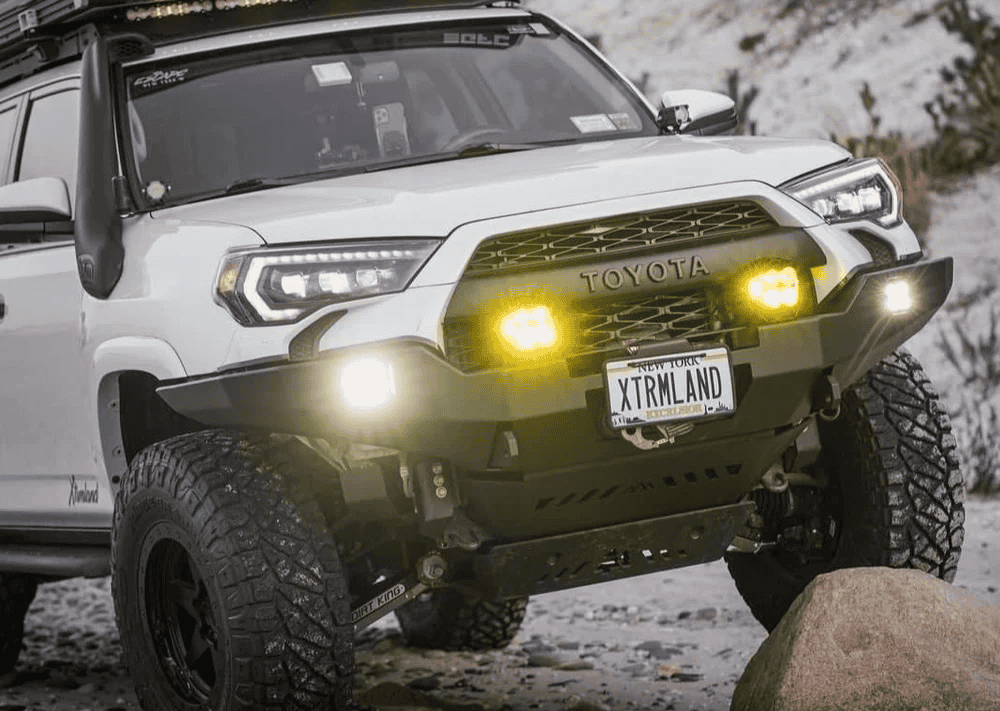Overland Vehicles

Roof rack fabrication is equal parts structural engineering and practical design. At its core, a rack must carry real loads under real motion without overstressing the vehicle roof or hardware. Builders compare dynamic and static ratings, then design for the rougher of the two. Dynamic load covers on road and trail forces like braking, crosswinds, vibration, and cornering. Static load relates to parked weight such as tents, people, and gear. The rack should respect the vehicle manufacturer’s roof limit and distribute forces across multiple hard points.
Material choice is a first order decision. Aluminum offers high strength to weight, natural corrosion resistance, and easy machining for accessory slots. Steel provides excellent stiffness and fatigue resistance, usually at a weight penalty, and requires thorough corrosion control. Finishes matter. Powder coat with zinc rich primer, e coat, or hard anodize can extend service life. Mixed metals demand attention to galvanic corrosion with isolators, compatible fasteners, and sealants.
Mounting methods must match the vehicle. Some platforms feature factory fixed points or track systems. Others use rain gutter clamps or through bolt solutions with internal reinforcement. Every penetrated hole should get deburred, sealed, and finished to prevent leaks and rust. Proper isolation pads spread loads and reduce noise. Quality hardware, often stainless with anti seize, prevents galling and keeps torque consistent through seasons.
Aluminum extrusions with T slot channels enable modular crossbars, tie down points, and quick accessory mounting. Plate style platforms add broad support for cases or solar panels while lowering the center of gravity. Steel tube racks remain a favorite for high strength perimeter rails and custom shapes. Many builds blend aluminum decks with steel feet for an optimal balance of weight, strength, and cost.
Coatings extend durability. Zinc primer under powder coat improves chip resistance. Hard anodized aluminum resists abrasion and looks clean longer. Fasteners should match the system to avoid galvanic pairs. Nylon or EPDM isolators between dissimilar surfaces help prevent corrosion and unwanted vibration. After any cut or drilled surface, touch up paint is essential.
Factory fixed points simplify installation and preserve structure. Track mount systems spread loads and allow fore aft adjustment. Rain gutter clamps require precise geometry and high clamping force without deforming the gutter. Through bolting demands interior reinforcement plates and careful sealing. Every penetration gets closed cell gaskets, polyurethane or butyl sealant, and torque checked fasteners. Water management is non negotiable. A well sealed rack is quiet, dry, and reliable in all seasons.
A responsible rack is designed around vehicle limits, not just what the rack can hold on a bench. Fabricators model real world cases including emergency maneuvers, rough washboard, and side loads. Gussets, triangulation, and properly sized crossbars prevent flex that can loosen fasteners. Testing includes road miles, noise checks, and periodic torque validation. Accessories must be secured with rated hardware and lock features. Tie down loops belong in reinforced locations that carry load into the structure, not just the deck surface.
Small choices change how a rack feels on the road. A fairing or tapered leading edge can cut wind noise dramatically. Rounded profiles and flush fasteners reduce drag and whistling. Easy reach tie points and T slot channels turn setup time into minutes. Integrated wire raceways protect lighting and antennas while keeping the deck clean. Low profile platforms lower the center of gravity and fit more garages. Strategic cutouts allow access to roof service panels or emergency exits on vans and trucks.
Air is relentless. Fairings that match windshield angle, crossbar spacing that avoids harmonic whine, and sealed accessory gaps all help. Rubber isolators and proper torque reduce vibration. A quiet rack reduces fatigue and lets you hear tires and trail inputs better.
T slot extrusions, L track, and slotted plates create a universal tool belt for travel. Swap ski carriers for Maxtrax, move cases forward for weight balance, or add a removable awning without drilling new holes. Modularity future proofs the rack as your trips change.
Adventure vans and overland trucks bring unique constraints. Tall roofs amplify side load. Long spans demand crossbar stiffness and robust feet. Solar, tents, and lighting compete for space, so cable routing and service access must be planned on day one. Good fabricators account for ladder placement, hatch swing, and rear camera visibility. They verify static load for tents and occupants while keeping dynamic limits in check. Most importantly, they design to the vehicle, not just to a generic rack pattern.
A thoughtful approach pairs structure with real travel habits. Weekend riders might favor a lighter deck with quick release mounts for bikes and boards. Long range travelers may choose a full platform for solar, peli cases, and a compact tent. In either case, the best racks carry weight safely, stay quiet, and leave room for how you camp and work on the road.
If you want a rack built to your routes and gear, OZK can design and install a system that fits your platform and your packing style. Our team builds quiet, sealed, low profile platforms that integrate lighting, wire management, and service access. See how we outfit trail ready vehicles on our overland rigs page, explore options on custom overland upfit, and learn what sets our shop apart at why choose OZK Customs. Share your roof measurements, cargo, and travel goals, and we will turn that empty space into organized, durable capacity that is ready for the next mile.
Ready to turn a bare roof into hard working real estate? Tell us how you travel and we will design, fabricate, and install a rack that fits your vehicle, respects OEM limits, and integrates lighting, storage, and recovery gear without extra noise or leaks. Submit the form to start your build plan.
ADDRESS:
6159 E Huntsville Rd, Fayetteville, AR 72701
PHONE:
(479) 326-9200
EMAIL:
info@ozkvans.com